It’s probably safe to say that most people love chocolate, but Kristen Hard has taken that love to the next level. Kristen, 34, is a maverick in the chocolate world by being equal parts chocolatier, lab geek, entrepreneur and fair-trade cacao bean aficionado. After bouncing back and forth with the idea of pursuing law school, Kristen let her love of chocolate dictate a new path in her life.
What sets Kristen apart from most chocolatiers is her vast knowledge of cacao. She is an expert on the ingredient’s nutritional benefits and the bean-to-bar fermentation process, with a passion for fair trade. This is one serious cacao know-it-all (in the best way), whose obsession has proven to be worthwhile.
Since opening her store, Cacao Atlanta, Kristen has expanded her brand to include over a hundred chocolate specialties, booming online sales and three boutiques. Locals, out-of-towners and even the press list Cacao Atlanta at the top of their “must visit” list. Career Contessa is honored to showcase a female entrepreneur who is proving that being an expert in her craft, being passionate and being graceful are the true ingredients for success.
Her Starting Point
Tell us about the Maria Alba. How did it shape your career path?
I was working aboard a ship called the Maria Alba as a private chef when we visited a market in Martinique during a stop. While there, I watched women standing over a fire crushing cacao beans and it was a magical moment for me. The dots connected and I started to see the difference between the chocolate I was eating and cacao. I became obsessed with the nutritional analysis of cacao, the benefits, the fermentation process—pretty much everything to do with cacao. Up to that time, I was on a pre-law undergrad track and had never imagined a creative career as a possibility. In my family, it was okay to have creative outlets but a traditional career was always encouraged. Yet, as I got ready to graduate I knew law school wasn’t right for me and decided not to pursue it after all.
How did you come about the decision to pursue chocolate as a career?
After graduation and a brief stint in Italy, I came back to Atlanta with no real plans but felt pressure to pursue a professional career. I moved to Augusta with my sister and while I was in this "figure it out" stage, I started diving into everything cacao again. At the same time, I was hosting dinner parties and making chocolate for friends and talking about cacao 24/7. It became clear what my passion was, but there wasn't anyone around to encourage me to pursue it or even to tell me that it was okay to pursue my passion for cacao. Later at a party, I was talking about chocolate and a woman called me out by asking why I wasn't pursuing a career working with it. That was definitely my "aha" moment. After that conversation, I found a potential job working for a chocolatier, but realized that if I took a job under a chocolatier, I would always be underneath someone and any success I had would be credited to that other party. I decided not to take the opportunity and instead, rented a kitchen in Connecticut to make and sell chocolates on my own.
Your passion for chocolate also includes being a self-taught maker. How did you teach yourself how to make chocolate?
The process took several years. I spent a lot of time learning and talking about cacao with no initial plan to pursue chocolate as a career. I taught myself how to make chocolate through trial and error. I was obsessing over cacao and read about it constantly. I would buy the necessary ingredients and practice. I didn't have any formal training.
Her Big Break
Tell us about the process of opening Cacao Atlanta and learning how to operate a business.
I moved back to Atlanta in 2004 and rented a kitchen where I made chocolate to sell at farmer’s markets, streets fairs, etc. and word started to spread. In 2008, I opened my first physical location in Inman Park outside Atlanta. I bought machinery and renovated the store with a loan from my mother. I did all of the renovations and designing myself. At that point, I had no idea that most people hired a contractor, so I was the one ripping down ceilings, doing electrical work, hanging chandeliers, building out a drop ceiling—you name it, I did it. I referred to the Internet and books for any answers and explanations I needed. I researched everything, including taxes, trademark information, payroll books, a business license, etc.
How did you manage marketing and gaining customers when you first started Cacao Atlanta?
I never did any formal marketing. It was all word-of-mouth. I attribute that to always being really precise with my messaging and being so passionate about what I was doing. I'm also very scientific and when it comes to quality, I don’t create anything less then the best. A reputation for quality has helped me gain accounts with companies like Saks Fifth Avenue and Williams Sonoma.
Explain your “bean-to-bar” process. How does this affect the quality of Cacao Atlanta’s chocolate products? Do you ever find it challenging to keep up with the high quality reputation you’ve set?
Creating chocolate from bean-to-bar is exactly as it sounds. After visiting and researching cacao farms, we have cacao seeds sent to us directly from our suppliers in Central and South America. Next, we start the process of turning cacao into chocolate, which includes roasting the beans, breaking them into small pieces (called nibs) and removing the shells (winnowing), grinding the nibs to form a chocolate paste and then refining and conching (forceful kneading) to produce the desired smoothness and develop flavor. The chocolate is tempered and then poured into molds. There is a lot of science behind bean-to-bar, which allows for a darker and more complex product than the sugary milk chocolate most people are accustomed to. I don’t find it difficult to keep up with our high quality reputation because choosing the top tier has always been a priority—the best of the best. We never sacrifice quality.
Finding a cacao bean supplier has been quite the challenge, and competition with larger companies is always a reality. How do you maintain stability with your suppliers? Are you trying to harvest your own cacao beans?
Competition is definitely out there but we make sure to have exclusive buying rights with our farmers and pay them top dollar. I have dialogue over fermentation and process, and visit the farms to invest the time in making sure deals are solidified for the next year. We do our best to work with good, solid people, but risk is always part of the equation. Ultimately, we will own a farm where we can harvest our own beans and control the fermentation process. In the current fermentation process of cacao, the fruit is picked off the tree, the seed is taken out of the fruit, the seed is thrown into a box, thrown on the ground, touched by people, flown around and, finally, the seeds are put into a wooden box. Inside that box, a natural introduction of microorganisms spurs the yeast for the cacao beans to go through fermentation, between two to seven days. Controlling that fermentation will make a better product—much like when wine makers learned how to control the fermentation of wine.
The bean-to-bar chocolate business is growing rapidly. How does Cacao Atlanta stand out from other artisan chocolates on the market?
Chocolate has been around for a long time and, in that time, many different companies have attempted to create different products. I think the companies that have succeeded had one of two things: great marketing or a better product. Bean-to-bar has become a hot topic in food conversation thanks to marketing, which has been to the benefit of Cacao Atlanta. I stand out from other bean-to-bar makers because I was previously a chocolatier and I know confectionary. I'm not just producing chocolate bars. A lot of chocolate makers only produce bars, but we have over 132 products using the bean-to-bar process at Cacao Atlanta.
If we had the chance to peek at your schedule, what would an average day look like?
Every day is so different! Having a new baby and going through a shift in the business has made my days even busier, but I make sure to set aside one hour everyday to focus on what I'm presently passionate about within the business and the vision for what the future looks like. I wouldn't call it a meditation but I try to be really present and available with myself. All of my stores are fully staffed and I have a full kitchen staff, but I do make sure to physically be in the stores when I can. For example, my schedule today includes: 5:30 a.m.: Wake up with the baby. 8:00 a.m.: Meet with my executive staff at my house to discuss all things business. 9:30 a.m.: Follow up with phone calls and emails. I'm on the advisory board for the Atlanta Food and Wine Festival, and today I got a call from the founder who wants me to go to London for a media tour. I'll be following up with her shortly. 12:00 p.m.: Follow up on the design of the business—stores, branding, etc. 2:00 p.m.: Discuss a new recipe. After I get inspiration for a new recipe, I discuss it with my staff and make plans before going into testing. Testing can last anywhere from six to twelve months and then we discuss design and packaging. 6:00 p.m.: Go home and spend quality time with my family. Once the baby is asleep, I'll probably go back to answering the emails and phone calls I wasn't able to get to in the day. After that, it’s "me" time.
Cacao Atlanta doesn’t just sell products in store. Tell us about the decision to expand your business and how that changed your business.
By default, I have created a complicated business as we do everything, including online, retail, wholesale and manufacturing. We incorporated different sales avenues when there was a demand from our customers, which has helped in our expansion decisions. Having all of those businesses adds some complexity to the overall business plan, but I wouldn't change any of it. I have an amazing team that helps with all the moving parts and keeping it all organized, which is another reason why I've been able to expand to include online wholesale, etc.
Her Perspective
Do you think it’s important for chefs to specialize in a certain ingredient? What advice would you give aspiring chefs and chocolatiers?
I was always passionate about food, but I was obsessed with chocolate. So I would say if someone gets into food and then develops an obsession with a particular ingredient, then absolutely follow that passion. Being a chef is tough, so it's also important to look at the lifestyle and make sure it’s something you love.
What’s your favorite Cacao Atlanta product? What makes it so delicious?
It always changes but currently it's our new Epiphanies bar line that is a blended bar comprised of dark, milk and white options. It is of the same superior quality but a blend of two single origin beans, which is different and very fun for me right now.
Combining your passions and career is hard. What advice would you give women trying to figure this out?
For six months, track on a daily basis what you find yourself loving to do. Take those passions and explore careers that include them. And don’t be shocked if you discover that you have a few different passions!
If you could pin your success down to one thing or one moment, what would that be?
I think my favorite moment has been finding my business partner, Caline Jarudi. She worked with me at Cacao Atlanta for over a year before we became business partners, but in that time I found that she completed me and was everything I was missing from the business. It's been an amazing relationship and has been so special to find a great business partner.
You May Also Like
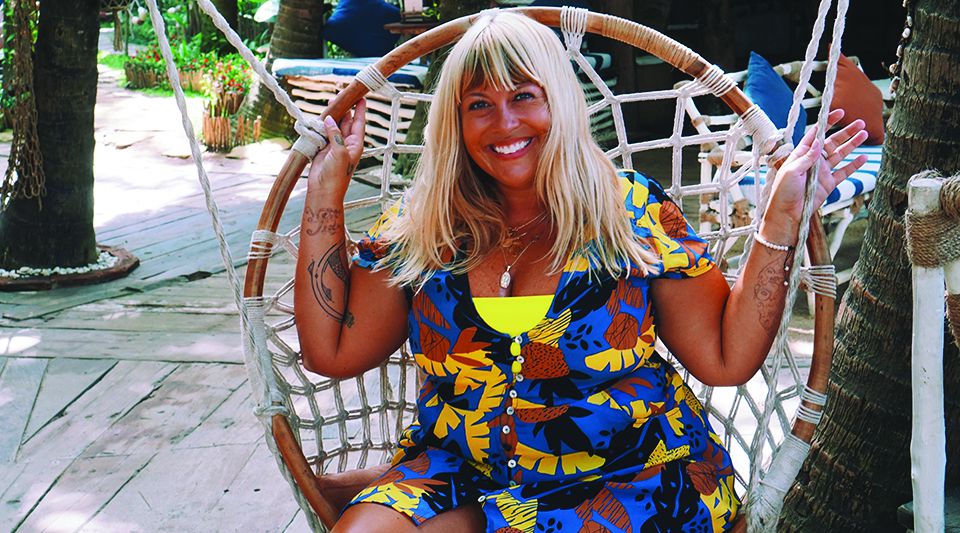
Fashion + Beauty
Unretouched—How Heather Caye Brown Disrupted the Swimwear Industry from Iowa
Heather Caye Brown always knew she wanted to be a designer. When she found out she wanted to spend the remainder of her life in a bikini, her career as a swimwear designer took off. Here's how she founded NIGHT DIVE from her home in Iowa.
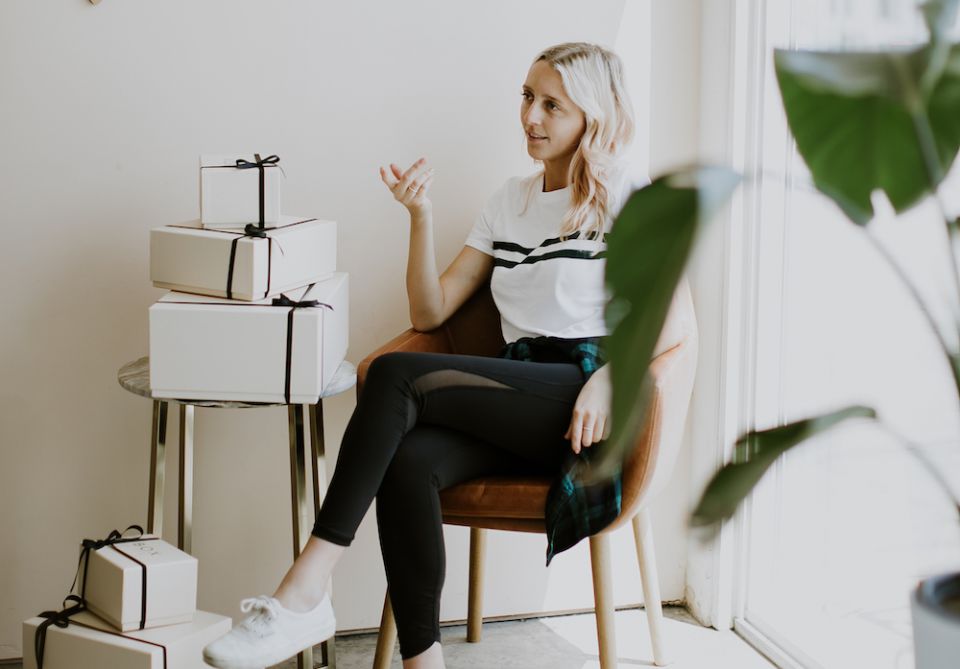
Fashion + Beauty
Disrupting the Gift-Giving Model with Co-Founder and CEO of BOXFOX
Chelsea Moore of BOXFOX joins us to talk about the gift-giving industry, about being a young leader, and how to work with friends.
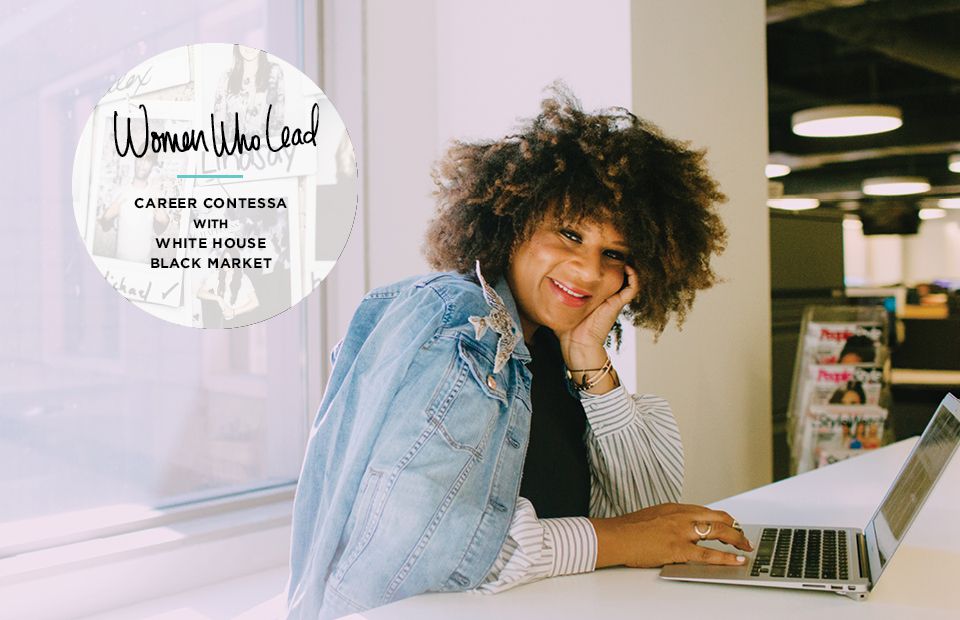
Media, Fashion + Beauty
Women Who Lead: Julee Wilson, Fashion & Beauty Director at ESSENCE Magazine
On what working in fashion media is really like and why balance doesn't exactly exist.
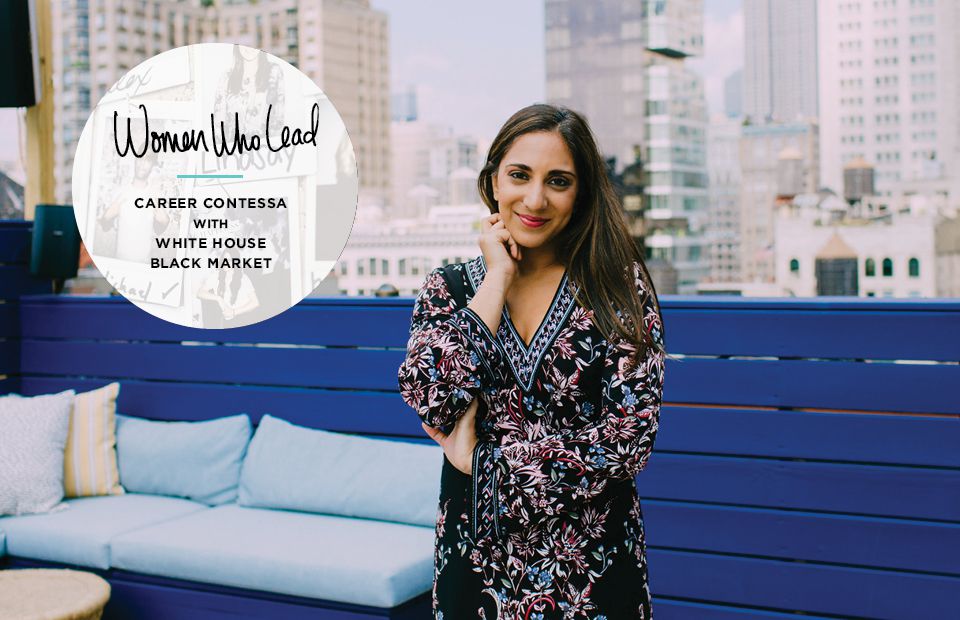
Media, Travel + Hospitality
Women Who Lead: Hitha Palepu of Hitha on the Go
On traveling for work, travel as work, and everything in between.
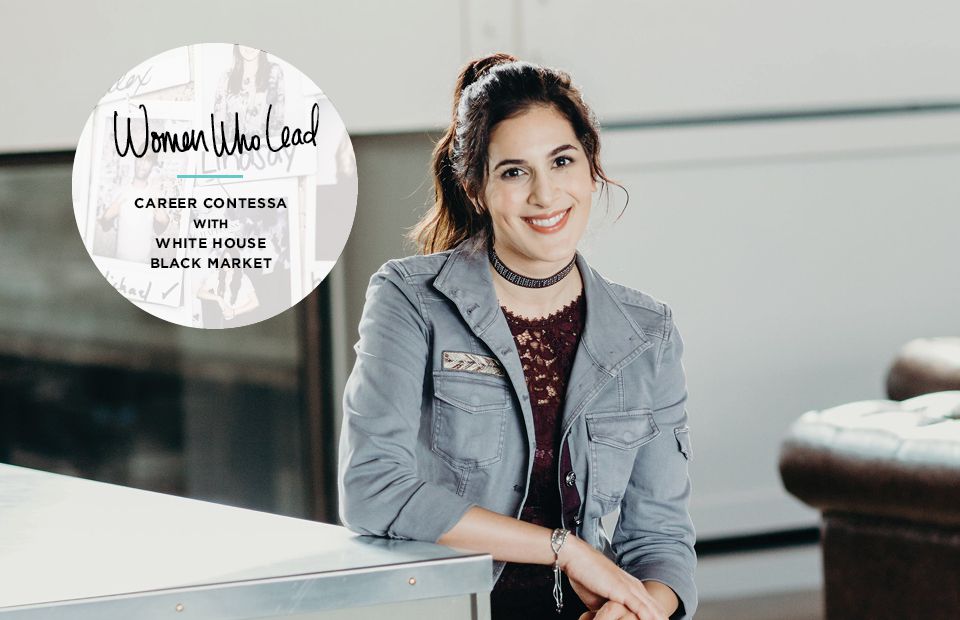
Media, Food + Beverage
Women Who Lead: Cynthia Samanian of Confetti Kitchen
From finance to foodie, Cynthia isn't afraid of risks—she's afraid of not taking them.
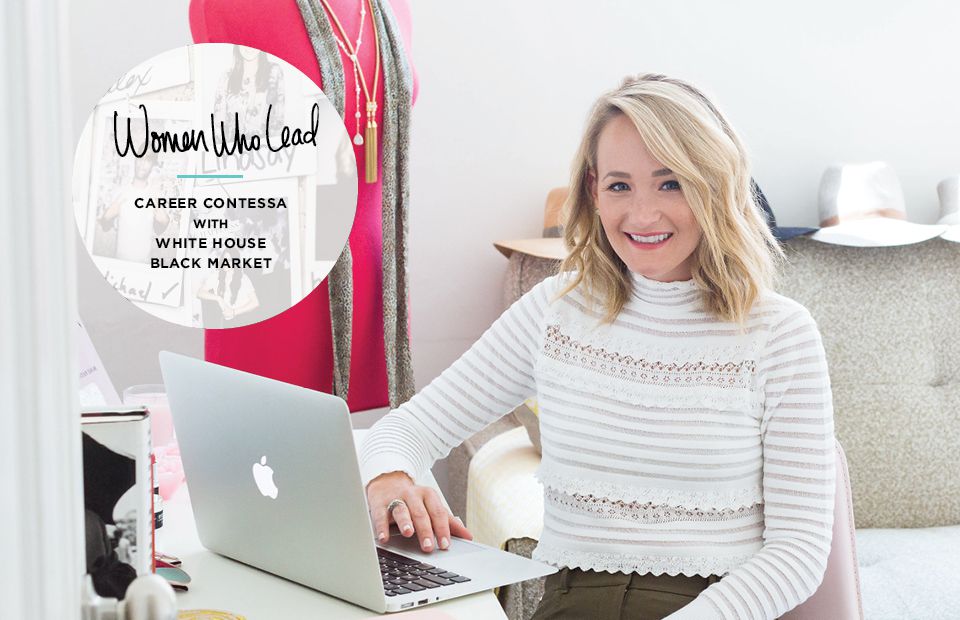
Media, Fashion + Beauty
Women Who Lead: Ashley Fultz of The Style Editrix
Ashley's showing us how motherhood and building a full-time career as a blogger can—and should—coexist.
Get the Best Career Advice Delivered To Your Inbox
Join our newsletter to stay in the loop.
